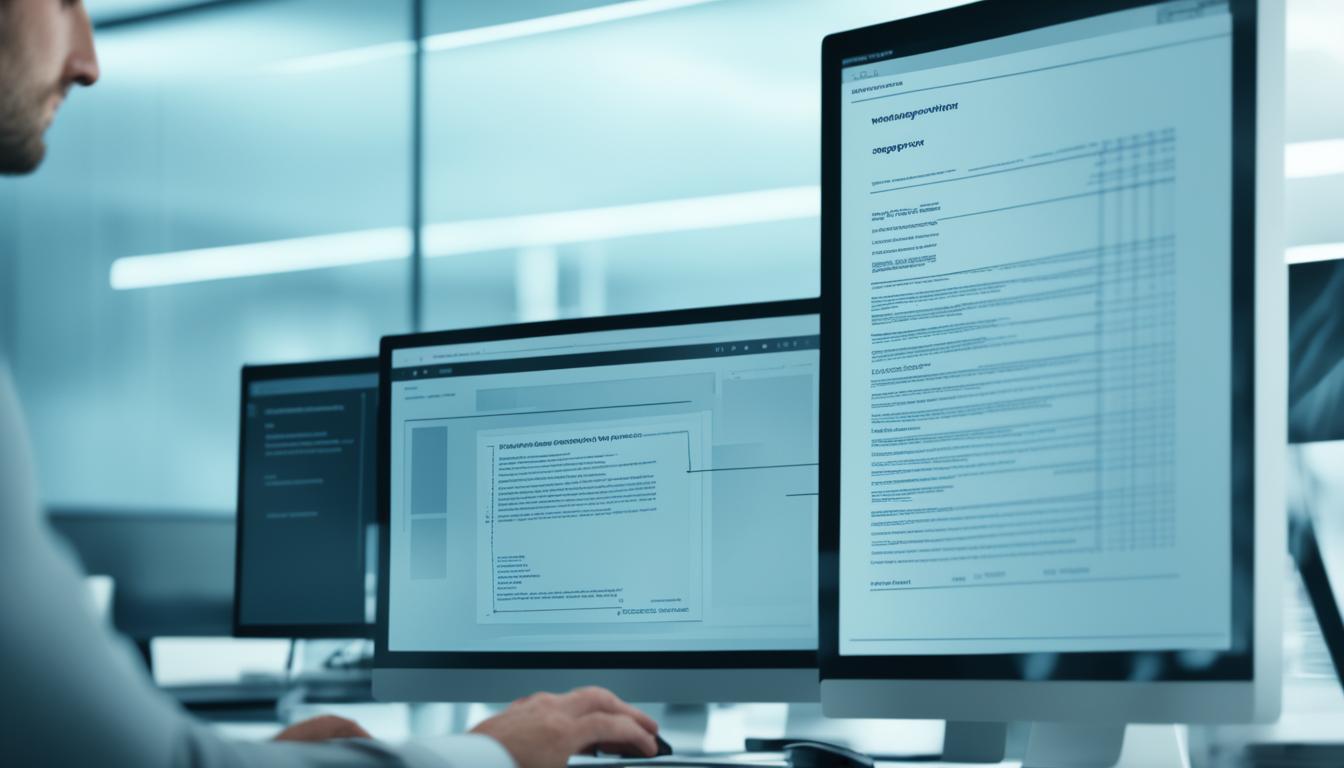Employer monitoring and workplace privacy are important topics for employees in today's digital age. Many employees may wonder, “Can my employer see what I print?” It's crucial to understand the policies surrounding employer monitoring and how it can impact your privacy.
Employers have legitimate reasons to monitor their employees, such as preventing theft and ensuring productivity. In fact, a survey conducted by XYZ Research revealed that a significant number of employees use work devices for personal tasks like email and shopping.
In this comprehensive guide, we will explore whether employers can see internet activity and what employees can do to maintain their privacy in the workplace. Let's dive deeper into the details.
Key Takeaways:
- Employers have a legitimate need to monitor their employees for security and productivity reasons.
- Employees should be aware that their employer may be able to monitor their internet activity.
- Using work devices for personal tasks may be monitored by the employer.
- Understanding employer monitoring policies is crucial to maintaining workplace privacy.
- Implementing best practices and being cautious about online activities can help protect your privacy at work.
Can my employer track my browsing history?
When it comes to employee monitoring, one question that often arises is whether employers have the ability to track their employees' browsing history. The short answer is yes. Employers can potentially see employees' browsing history through various means.
Employers may utilize remote employee monitoring software, which allows them to track and monitor the online activities of their employees. These software programs can record and log browsing history on work devices, providing employers with insights into the websites visited by their employees.
Additionally, employers can also check the browser history directly on work devices. By accessing the browser history, employers can gain visibility into the websites visited by their employees.
While it is important to note that employers are not legally allowed to monitor personal browsing history, they do have the ability to view internet history on work devices. The distinction between personal and work-related internet activity may not always be clear-cut, especially if employees use their work devices for both personal and professional purposes.
Employers have the right to protect their business interests and ensure that employees are using work devices responsibly and productively. Monitoring browsing history can help employers identify any potential vulnerabilities, security risks, or unauthorized use of work devices.
It is essential for employees to understand their employer's monitoring policies and practices, as they may vary from company to company. By being aware of these policies, employees can better navigate workplace expectations and make informed decisions regarding their internet usage on work devices.
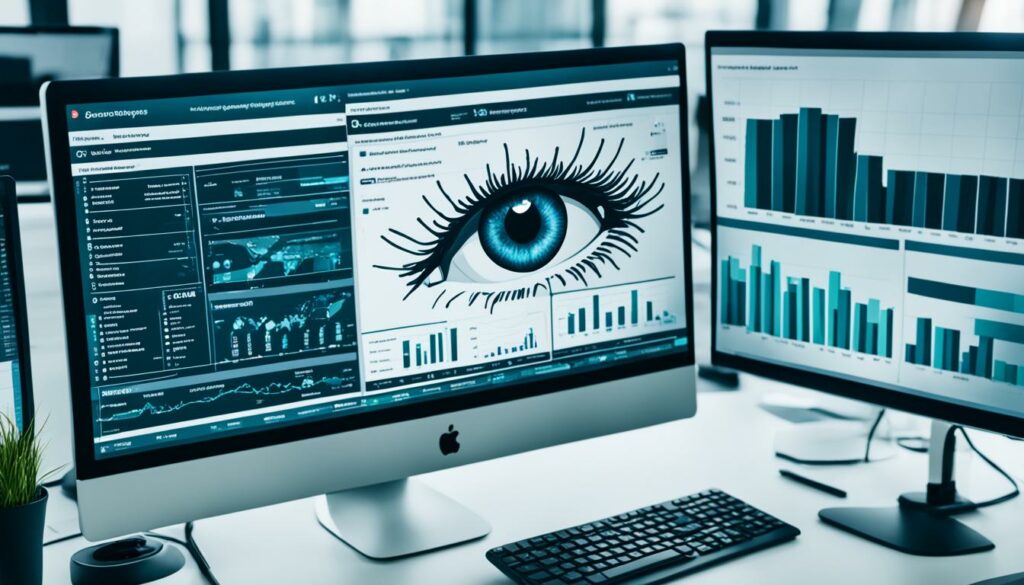
However, while employers can track browsing history on work devices, employees should also take certain precautions to protect their privacy. For instance, using a virtual private network (VPN) can help encrypt internet activity, making it more difficult for employers to monitor browsing history.
Pros and Cons of Employer Monitoring of Browsing History
Before we dive further into this topic, let's take a closer look at the advantages and disadvantages of employer monitoring of browsing history. Understanding both sides can help employees make informed decisions and strike a balance between privacy and productivity.
| Pros | Cons |
|---|---|
| Enhanced cybersecurity | Potential invasion of privacy |
| Prevention of unauthorized use of work devices | Potential erosion of trust |
| Protection of company resources | Potential impact on employee morale |
As demonstrated in the table above, employer monitoring of browsing history has its advantages in terms of enhancing cybersecurity and preventing unauthorized use of work devices. However, it also raises concerns about privacy invasion, erosion of trust, and its potential impact on employee morale.
Ultimately, finding the right balance between employer monitoring and employee privacy is crucial to maintaining a healthy work environment. Employers should establish transparent monitoring policies and communicate them clearly to employees. Similarly, employees should be mindful of their internet usage on work devices and take steps to protect their privacy when needed.
Can my employer see my browsing history at home?
As remote work becomes more prevalent, employees may find themselves using company-owned devices and connecting to the company network from the comfort of their homes. However, this raises concerns about the extent to which their employer can monitor their online activities, including their browsing history.
If employees are using company-owned devices and connecting to the company network from home, it is highly likely that their employer has the capability to see their browsing history. This is because when employees connect to the company network, their internet traffic often passes through the company's servers, allowing the employer to monitor and track their online activities.
It's important to note that even if employees are using personal devices while working remotely, if these devices are connected to the company network, the employer may still have the ability to track their browsing history. This is why it is crucial for employees to be aware of the potential monitoring by their employer and to exercise caution when accessing sensitive websites or engaging in personal activities online.
While employer monitoring of browsing history can raise concerns about privacy, it is essential for employees to understand that employers have legitimate reasons for monitoring their employees' online activities. They may need to ensure productivity, protect company data, or prevent the misuse of company resources. As such, it is important to familiarize oneself with the company's policies regarding remote work and understand the extent to which browsing activities may be monitored.
Pros and Cons of Employer Monitoring of Browsing History
| Pros | Cons |
|---|---|
| 1. Ensures productivity and prevents time-wasting | 1. Invasion of privacy |
| 2. Protects company data from security threats | 2. Potential for misuse or misinterpretation of browsing activities |
| 3. Helps enforce acceptable use policies | 3. Sensitive personal information may be exposed |
| 4. Prevents access to harmful or inappropriate content | 4. Creates a sense of mistrust and negatively affects employee morale |
It is essential for employees to strike a balance between their online privacy and their employer's legitimate concerns. By adhering to the company's policies, avoiding sensitive activities on work devices, and being mindful of the potential monitoring, employees can navigate remote work without compromising their privacy or putting themselves at risk.
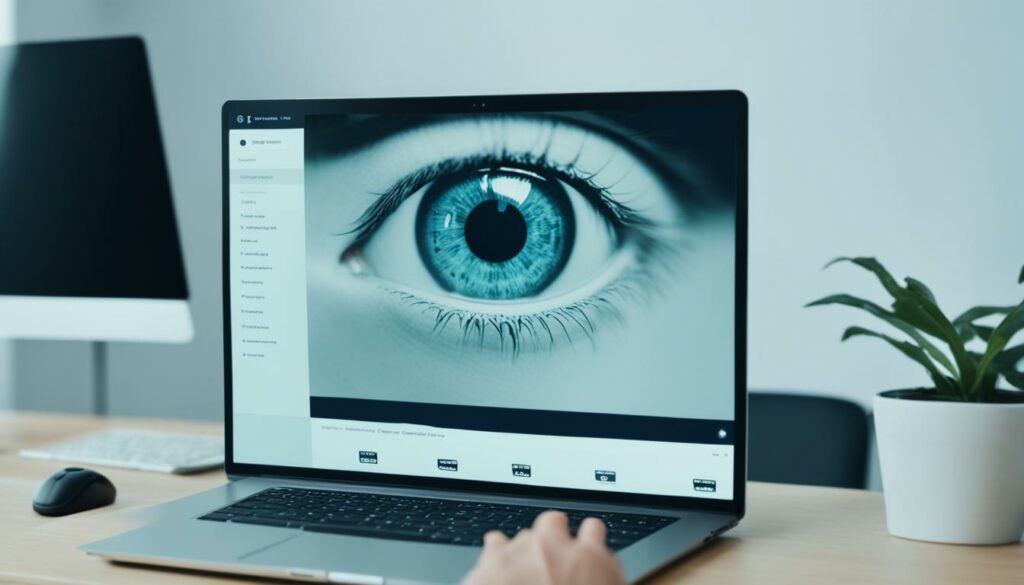
Can my employer see my browsing history on my phone when I use it at work?
Employers have the capability to track internet activity on work WiFi networks, and this includes browsing history on phones used at work. Whether you're using a company-issued device or your personal phone connected to the work WiFi, your browsing activity can be monitored. To maintain privacy and avoid such monitoring, consider using your mobile data instead of the work WiFi network.
It's important to be aware that connecting to a work WiFi network gives your employer the ability to monitor your online activities, including the websites you visit on your phone. This monitoring extends to both work-related tasks and personal browsing during work hours. While it may feel convenient to connect to the work WiFi, using your mobile data can provide an additional layer of privacy.
Using your mobile data instead of the work WiFi network can help ensure that your browsing history remains private from your employer's monitoring.
By using your mobile data, you bypass the work WiFi network entirely, making it harder for your employer to track your internet usage. However, keep in mind that if your employer provides you with a company phone, they may have additional means of monitoring your device, such as tracking app installations or browsing through device logs.
It's essential to familiarize yourself with your company's policies regarding employer monitoring, phone usage, and work-related WiFi networks. Understanding these policies can help you make informed decisions and navigate your work environment while preserving your privacy.

Monitoring employee activity on work WiFi networks is a common practice for employers. However, it's crucial to strike a balance between productivity and respecting employees' privacy. If you have concerns about your employer's monitoring practices, consider discussing them with your HR department or reviewing your company's employee privacy policies.
Can my boss read my email?
When it comes to email privacy in the workplace, employees should exercise caution. Employers can read emails sent through work accounts and may even use software to monitor incoming and outgoing emails. Some employers go a step further by utilizing keylogger software to gain access to drafts and deleted emails. It's crucial to understand that personal emails accessed through the company network may also be vulnerable to monitoring, though the legality surrounding this practice varies.
If you're concerned about your email privacy at work, it's important to familiarize yourself with your company's policies regarding email monitoring and usage. Additionally, maintaining professionalism and refraining from sharing sensitive personal information through work email can help protect your privacy.
“Although it's essential for employers to ensure the security and productivity of their workplace, employees should also be mindful of how their email communications may be monitored.”
How to maintain email privacy:
- Avoid using work email for personal correspondence.
- Encrypt your emails if your employer allows it or consider using an encrypted email service for personal matters.
- Regularly review your company's email policies to stay informed.
- Consider using a personal email account for confidential or sensitive discussions.
By taking these precautions, employees can better protect their email privacy while maintaining professionalism in the workplace.

Can my boss read my text messages?
When it comes to employer monitoring, text messages can be a gray area. Let's explore what you need to know about text message privacy on company-provided phones versus personal devices.
Monitoring Text Messages on Company Phones
Employers generally have the right to monitor text messages sent from company-provided phones. This is because these devices are owned and managed by the company, and they are intended for work-related purposes. The company has a legitimate interest in ensuring that its resources are used appropriately and that employees are not engaging in any misconduct or illegal activities.
By monitoring text messages, employers can deter potential productivity issues, prevent data breaches, and protect company assets. Monitoring may include reviewing message content, timestamps, and recipient information.
Text Conversations on Personal Devices
On the other hand, employers typically cannot monitor text conversations on employees' personal phones. Personal devices are considered private property, and individuals have a reasonable expectation of privacy when using them.
It's important to note that some companies may have policies in place that require employees to install certain software or apps on their personal devices to facilitate work-related communication. In these cases, there may be some level of monitoring or access to text conversations. However, it is essential for employers to clearly communicate and obtain employees' consent for any monitoring activities on personal devices.
Here's a table summarizing the key points:
| Device Type | Employer Monitoring |
|---|---|
| Company-provided phones | Employers generally have the right to monitor text messages. |
| Personal phones | Employers typically cannot monitor text conversations. |
Remember that specific laws and regulations regarding employee privacy can vary depending on your jurisdiction. It's essential to familiarize yourself with your local laws and consult legal experts if you have any concerns.
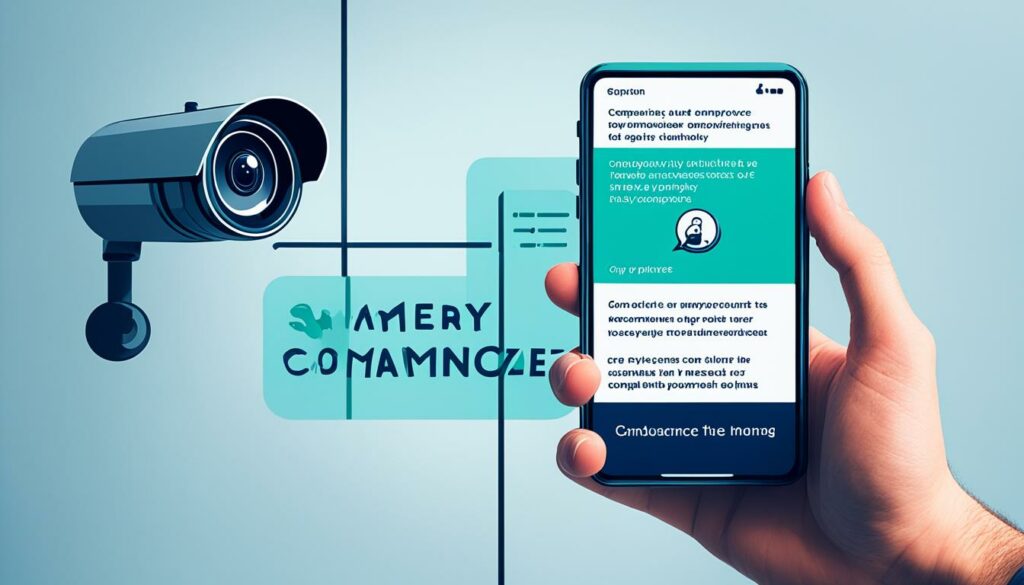
Having a clear understanding of your company's policies and expectations around text message usage is crucial. When using company-provided phones, it's important to exercise professionalism and use these devices for work-related communication only.
Remember, always think twice before sending any sensitive or confidential information via text messages, regardless of the device you're using.
By being mindful of your electronic communications and understanding your rights and responsibilities, you can navigate the balance between privacy and workplace expectations.
Can employers read slack messages?
In today's digital workplace, communication happens through various platforms, including Slack. However, employees may wonder if their employers have the ability to monitor their Slack messages. Let's explore the topic of employer monitoring in relation to Slack messages and workplace communication.
Employers can indeed read Slack messages and private instant messages sent through the company platform. This is because Slack messages are considered company property and can be accessed by employers for various reasons, including security, compliance, and maintaining a professional work environment.
“Slack messages are considered company property and can be accessed by employers for various reasons, including security, compliance, and maintaining a professional work environment.”
Additionally, it's important to note that private Slack messages may also be accessible to employers by downloading and exporting them into ZIP files. This means that even if a message is marked as private, there is still a potential for it to be accessed by employers if they have the necessary privileges and permissions.
Best Practices for Maintaining Privacy in Slack
While employers have the ability to monitor Slack messages, there are steps employees can take to maintain privacy within the platform:
- Be mindful of the content shared in Slack messages and avoid discussing sensitive or personal matters.
- Use private channels or direct messages sparingly and only for work-related discussions.
- Avoid sharing confidential or proprietary information through Slack messages.
- Regularly review and delete unnecessary messages to minimize potential exposure.
Understanding Workplace Communication Policies
It's important for employees to familiarize themselves with their company's workplace communication policies. These policies outline the expectations and limitations regarding communication platforms like Slack. By understanding these policies, employees can use Slack more confidently while adhering to the organization's guidelines.
Here is an example table showing some common workplace communication policies:
| Communication Policy | Description |
|---|---|
| Acceptable Use Policy | Establishes guidelines for appropriate use of communication platforms, including Slack. |
| Data Confidentiality Policy | Highlights the importance of protecting confidential information when using Slack or any other communication tool. |
| Code of Conduct | Defines the expected behavior and professional standards for all employees when communicating through Slack. |
By adhering to these policies, employees can ensure their communication on Slack remains compliant and professional.
In conclusion, employers have the ability to read Slack messages and monitor workplace communication. To maintain privacy, employees should use discretion when sharing information through Slack and familiarize themselves with their company's communication policies.
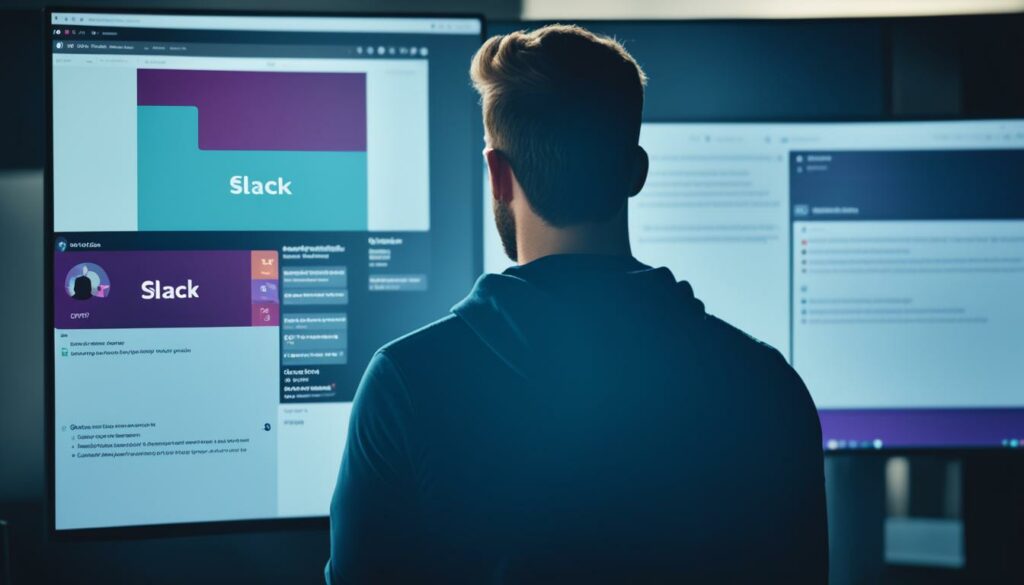
Can my boss see my passwords?
When it comes to employer monitoring, password security is a concern for many employees. While employers may have access to passwords stored on work devices or personal devices connected to the company network, using these passwords would be highly unethical.
It's important to note that accessing or utilizing someone's passwords without their consent is a violation of privacy and can have legal consequences. Employers should prioritize maintaining trust and respecting the privacy of their employees.
To ensure password security in the workplace, employees can follow these best practices:
- Create strong and unique passwords for work accounts
- Regularly update passwords and avoid reusing them across different platforms
- Use password managers to securely store and manage passwords
- Enable two-factor authentication whenever possible
“The weakest link in the chain of password security is often human behavior. It's crucial for employees to be vigilant and proactive in safeguarding their passwords to protect their personal and professional information.”
To further enhance password security, employees should also be mindful of the following:
- Avoid sharing passwords with others
- Avoid writing down passwords or storing them in easily accessible locations
- Regularly review and update security settings on work devices
Best Practices for Password Security
| Best Practices | Description |
|---|---|
| Create strong and unique passwords | Use a combination of uppercase and lowercase letters, numbers, and special characters |
| Regularly update passwords | Change passwords periodically and avoid reusing them across multiple accounts |
| Use password managers | Tools that securely store and generate complex passwords |
| Enable two-factor authentication | Add an extra layer of security by requiring a second form of verification |
| Avoid sharing passwords | Keep passwords confidential and avoid sharing them with others |
| Avoid writing down passwords | Avoid storing passwords in easily accessible locations |
| Regularly review and update security settings | Stay up-to-date with the latest security measures on work devices |
By implementing these best practices, employees can enhance their password security and protect their personal and professional information. Remember, it's important to maintain trust and respect in the workplace by adhering to ethical guidelines regarding password usage.
What should I avoid storing on my work computer?
When using your work computer, it's important to be mindful of the type of content you store on it. Here are some things you should avoid:
Inappropriate Materials
It goes without saying that storing inappropriate materials on your work computer is not only unprofessional but also potentially harmful to your career. This includes explicit content, offensive images or videos, and any other material that can be deemed inappropriate in a workplace setting. It's best to keep your computer free from such content to maintain a positive work environment.
Personal Information
Your work computer should not be used as a storage device for personal information. This includes sensitive data such as your social security number, bank account details, or any other personal identification information. Storing such information puts you at risk of unauthorized access and potential identity theft. It's advisable to keep personal information on separate devices that are secured with proper privacy measures.
Job Applications
While it may be tempting to store copies of your job applications on your work computer for convenience, it is not recommended. Your work computer is primarily meant for work-related tasks, and storing job applications could potentially breach confidentiality if seen by colleagues or supervisors. It's best to store job applications on personal devices or on cloud-based platforms that ensure privacy and accessibility.
Passwords
Storing your passwords on your work computer can be risky, as it compromises your online security. If someone gains unauthorized access to your work computer, they could potentially obtain your passwords and use them for nefarious purposes. It's advisable to use password managers or encrypted storage devices to keep your passwords secure and separate from your work computer.
| What to avoid storing on your work computer |
|---|
| Inappropriate Materials |
| Personal Information |
| Job Applications |
| Passwords |
By avoiding storing inappropriate materials and personal information on your work computer, you can maintain a professional work environment and protect your privacy. Remember to keep job applications, passwords, and other sensitive information on separate devices that are securely encrypted.

How can I prevent my boss from seeing my internet history?
When it comes to privacy and internet browsing at work, it's important to be mindful of your employer's monitoring policies. While using a Virtual Private Network (VPN) can help encrypt your internet activity, it's crucial to understand that employers may still have other ways of tracking your online actions.
Employers have a legitimate interest in monitoring employee internet usage to ensure productivity, prevent security breaches, and protect company resources. Therefore, it's safe to assume that your employer is monitoring all online activity on work devices and networks.
Using a VPN can add an extra layer of security to your browsing activities by encrypting your data and masking your IP address. This can make it more challenging for your employer to track your internet history. However, it's important to note that employers may still be able to monitor activity through other means, such as network traffic analysis or keylogging software.
To further protect your privacy, here are some additional steps you can take:
- Use your personal devices: If possible, avoid using work devices for personal browsing. By using your personal computer or smartphone, you can keep your online activity separate from your work environment.
- Clear your browsing history: Regularly clear your browsing history, cookies, and cache on work devices to minimize the digital footprint left behind.
- Avoid logging into personal accounts: Refrain from logging into personal social media accounts, email, or other personal accounts while using work devices. This can help minimize the risk of your employer accessing your personal information.
- Be cautious of public Wi-Fi: When working remotely or using public Wi-Fi, be mindful of the security risks associated with these networks. Avoid accessing sensitive or personal information while connected to public Wi-Fi and consider using a VPN for added protection.
“While a VPN can help secure your internet connection, it's important to remember that it's not a foolproof solution. Employers may still have other means to monitor your online activities.”
Keeping all these considerations in mind can help you maintain a balance between your privacy concerns and your employer's need for monitoring. Prioritizing professionalism and adhering to your company's policies are essential for a productive work environment.
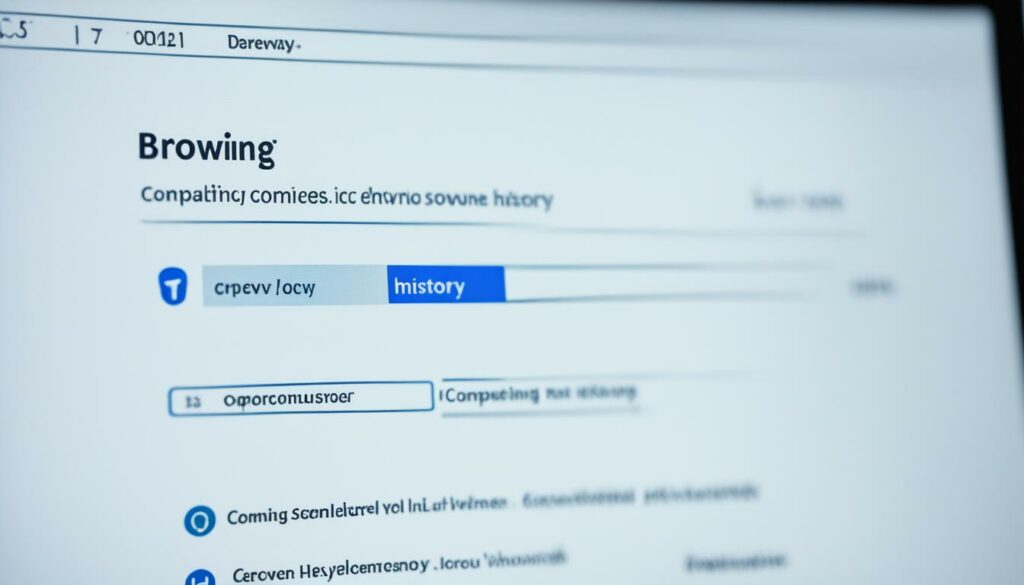
Conclusion
Employees must be aware of the potential for employer monitoring of their online activities, particularly when using work devices and networks. It is crucial to maintain professionalism and refrain from storing personal information on company computers to preserve workplace privacy. While using a VPN and personal devices can enhance privacy, it is essential to familiarize oneself with company policies and restrictions.
Workplace privacy is a complex issue, and striking a balance between employee rights and employer monitoring obligations can be challenging. Employers have legitimate reasons to monitor their employees, such as preventing theft and ensuring productivity. However, employees also have rights to privacy and should be informed about the extent of employer monitoring.
By understanding their rights and responsibilities, employees can make informed decisions about their online activities in the workplace. It is advisable to exercise caution when using work devices for personal purposes and to limit the storage of personal information on company computers. By doing so, employees can proactively protect their privacy while maintaining a productive and professional work environment.

I'm Morgan, the creator of VPNForMe — a site born from too many hours spent side-eyeing sketchy VPN reviews and buffering videos.
I wanted a place where people could get straight answers about privacy, streaming access, and which VPNs actually deliver — without the hype or tech jargon.

